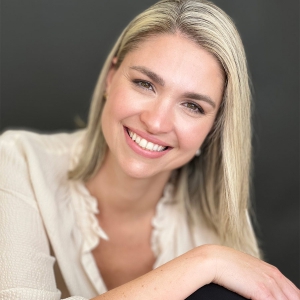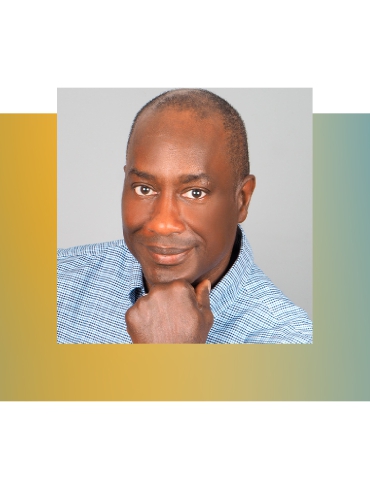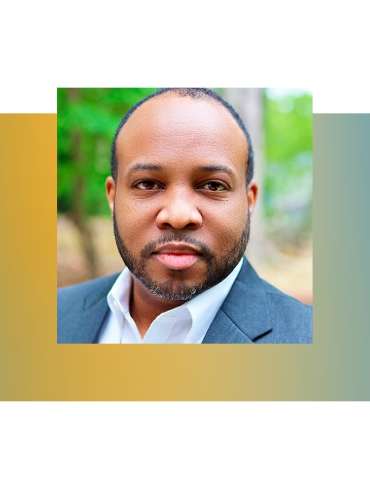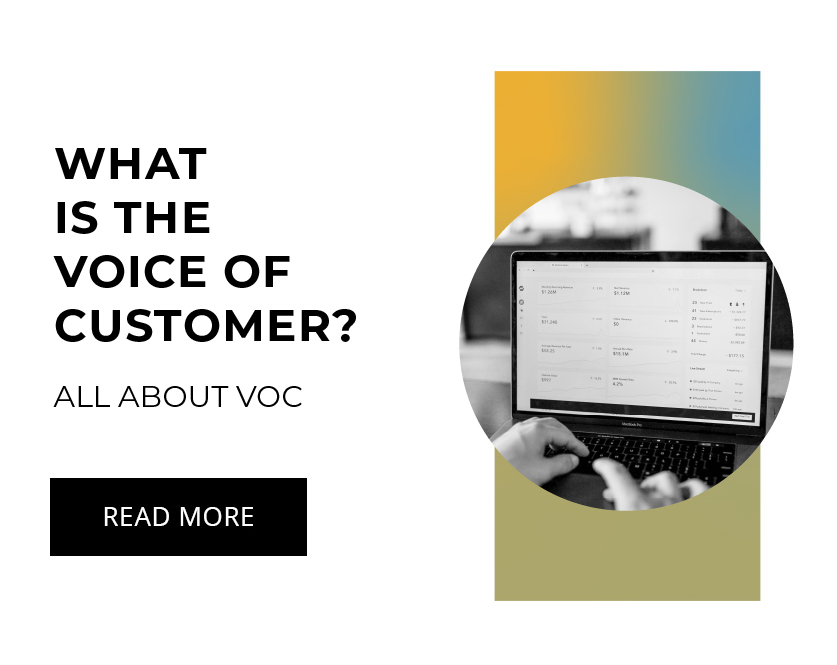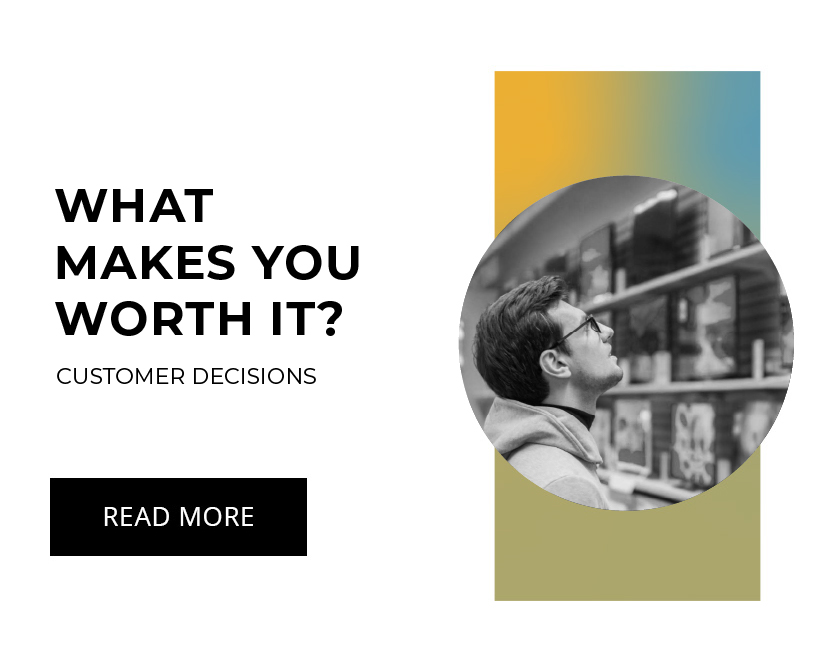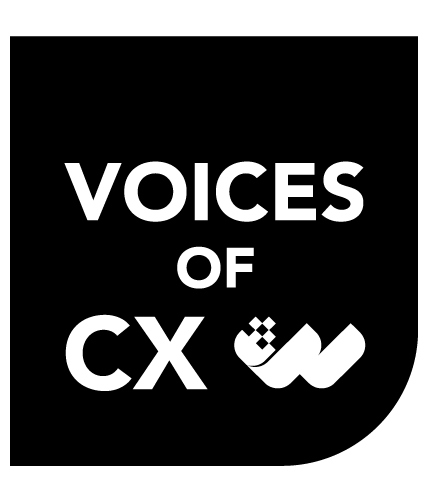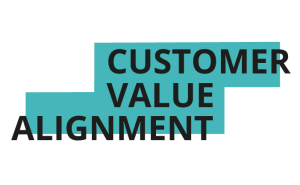About Ian Golding
Ian Golding, is a Certified Customer Experience Professional and Customer Experience specialist. A certified Lean Six Sigma Master Black Belt, Ian has spent over twenty years in business improvement, working hard to ensure that the businesses he works for are as customer focused as possible.
Ian has published over 500 articles on the subject and delivered keynote speeches globally. Ian also served on the inaugural board of Directors of the Customer Experience Professionals Association (CXPA), of which he was a founder member. Ian was also the first person in the world to be authorised by the CXPA to teach the Certified Customer Experience Professional (CCXP) accreditation. In 2015, Ian became an Advisor and featured columnist for CustomerThink – a global online community of business leaders striving to create profitable customer-centric enterprises. The site serves 80,000+ visitors per month from 200 countries.
Ian’s first book was published in April 2018 – ‘Customer What?’ The honest and practical guide to Customer Experience’ – is already being well received by professionals around the world.
Buy Ian Golding’s Book, “Customer What?” on Amazon
Follow Ian Golding on LinkedIn
Follow Ian Golding on Twitter: @ijgolding
Follow Worthix on LinkedIn
Follow Worthix on Twitter: @worthix
Follow Mary Drumond on LinkedIn
Follow Mary Drumond on Twitter: @drumondmary
Transcript:
[00:06] Mary Drumond: You’re listening to Voices of Customer Experience. I’m your host Mary Drumond, and on this podcast we shine the spotlight on individuals who are making a difference in customer experience. We also proudly bring you the very best of customer experience behavior economics data analytics and design. Make sure to subscribe or follow us on social for updates. Voices of Customer Experience is brought to you by Worthix. Discover your worth at worthix.com.
[00:35] MD: Joining us from the United Kingdom is Ian Golding. Ian is a certified customer experience professional and a customer experience specialist. He’s a certified Lean Six Sigma master black belt and has spent over 20 years in business improvement working hard to ensure that the businesses he works for are as customer focused as possible. Ian has published over 500 articles on customer experience and delivered keynote speeches across the globe. He also serves on the inaugural board of the directors of the Customer Experience Professional association of which he is a founding member. Welcome Ian.
[01:11] Ian Golding: Hi Mary. Hi James lovely to be with you.
[01:13] MD: And I’m joined today by my co-host James Conrad. Hi James. [01:18] James Conrad: Hi Mary. Great to be here. [01:19] MD: Ian is here to talk about his brand new book Customer What? The Honest and Practical Guide to Customer Experience, a book which I just read myself and it’s great. I want to go over a few details of my impression of the book with you as well. I did want to commend you on your book I read that you you funded this book on Kickstarter and that’s something that we discussed over email as well so you’d launched this fully independent without any publishers.
[01:49] IG: Yes, indeed. It’s been quite a fascinating experience for someone that’s never been involved in publishing a book before. I think the whole principle of devising the concept of the book is that I wanted it to feel like it was it’s something that many people have contributed to in making it happen in sharing stories of people that have influenced them. And so the Kickstarter thing was a way of allowing people to have a little part of it but also helping me to make it possible.
[02:26] MD: You’re constantly referencing other people from the CX industry, people that I know that you’ve got a close working relationship with – Bruce Temkin and Jeanne Bliss. Other people from the CXPA which I know you’re very active with. And I’m actually going to get into that where you talk about the concepts, the core competencies of CXPA later. But another thing that I thought was interesting to bring up for those of you who haven’t read Ian’s book I suggest you do and one of the coolest things for me is that I feel like the way you wrote this book, it really had the customer of this book who’s the reader in mind in the lay out in the way it’s diagrammed. You’ve got a space off to the right for adding notes which for me is very helpful because I write all over books and I mark them up so I did want to note that it was very, let’s say, customer centric of you.
[03:35] IG: The keyword is in the title, and that’s “practical.” I spent 17 years doing this on the inside of organizations myself at a time when many people didn’t even know what customer experience was. It wasn’t even a thing. And what you need when you’re on the inside doing this is you need support, and support can come in many different forms. Being a customer experience professional is a lonely existence, and very often you don’t know where to turn. You don’t know who to ask. And you know what I wanted to do was to create something that could potentially act as a resource to give them that support, to keep reminding them that they are not crazy, and what they’re doing is the right thing but also something that is practical enough that from a text they can read it and do something with it. And you know that the most wonderful thing is that the book only went live at the beginning of May. For the number of people that are already telling me that they have done stuff as a result of reading a book is just wonderful. That’s what this is all about. This was never really conceived by me as a way of making money. That wasn’t really the point. The point is that I do genuinely want to help people make customer experience something that’s tangible. And so making this a practical text was the most important thing.
[05:00] MD: I feel like it was designed as a play book, something that you can immediately take to the board room and use as a one, two, three guide.
[05:09] IG: Absolutely. My vision is that whenever I see one it’s essential that I see it with bits of post it notes sticking out of the side and scribbles all over it.
[05:23] MD: Oh my, I’m going to send you a picture of my copy. That’s exactly what it looks like. [05:26] IG: Then you’re using it in exactly the right way then.
[05:29] MD: Awesome. Well the book, you divided it into fundamentals, right. Culture, making it happen, and sustaining. Can you get into that a little bit for me? Explain the concept and how you divided these chapters.
[05:46] IG: Yeah. And what I must do before I explain this is I always want to make sure that I give credit where credit is due. Because I have a wonderful lady who works with me called Beth Richardson who edited the book without her independent perspective on my ramblings and her ability to pull those ramblings together, it wouldn’t wouldn’t have ended up looking the way it has. And it was much of Beth’s inspiration really that took my ideas and turned them into the structure that we see. And what the two of us determined is for someone who has a practical desire or a genuine desire to want to help their organization become sustainable customer centric, then there are a number of things that they have to work out. And they’re not necessarily sequential because customer experience isn’t a black and white art. But in a book, I think it is vital to start with the fundamentals. Start with understanding that well if we’re talking customer experience in the first place, is the organization we’re working with even ready for this? And I’ve been sharing with people the principle of customer experience readiness for the last six and a half years I’ve operated as an independent specialist. And then when I talk about readiness in its simplest form, it’s so important for a practitioner to have a sense of understanding. Do people even acknowledge the need for customer experience in the first place?
[07:30] MD: Even more basic than that, do they agree on what customer experience is?
[07:37] IG: Exactly. Because the challenge is that many people who read this book will believe in customer experience. It is so deeply that it is almost part of them. The danger is that because we believe in it so much we just want to charge ahead with our heads down, dragging people with us. But it’s really important for us to realize that despite the fact that customer experience been talked about for the last 15, 20 years the confusion the lack of understanding is rife. And so we’ve got to start with giving people an understanding of what exactly it is, how they feel about it today, what we need to do to change their understanding. And you know that the first stage of readiness, I call the acknowledge phase . This is not very politically correct, but I will always describe it as the alcoholic phase. Because the biggest challenge we’ve got as a community is really trying to influence people.
[08:39] IG: So I have a problem in the first place and so the fundamentals is all about getting people to understand why customer experience is important, where they are in their own journey either as individuals or as a team in recognizing the need to change, and then how we as professionals can exert the right levels of authority and leverage, different types of authority to enable the organization to come on the journey with us. So that’s where the fundamentals come in. Then as you move into the other parts of the book it was all about then turning that fundamental understanding into practical application. So you know creating a cultural environment where people are able to think and act in the interest of customers. Understanding how to turn a visualization of the interactions customers have with you into something that is embedded as a continuous cycle of activity to always enable you to meet and exceed the needs and expectations of customers.
[09:53] IG: And then most importantly to creating an environment that ensures that you are enabling a long term focus on customer experience. That last chapter, the bit about sustaining, the sad reality is that is where many organizations are struggling more than anything else – sustaining their focus on customer experience is really, really tough. Ultimately, there is something for everyone here. Everyone will be at a different stage of evolution. There is at least one thing that anyone who reads this I am pretty sure will take away and want to do something with.
[10:37] MD: Voices of Customer Experience is brought to you by Worthix. If you’re interested in customer experience, behavior economics, or data science follow Worthix on social media or subscribe to our blog for the best content on the web.
[10:55] JC: It’s really interesting. I love the practicality, Ian, of laying this out for individuals to try to take action because I think we share the same beliefs that there’s something here. And I agree. I think yes folks feel a little bit challenged when they’re trying to move the agenda forward and they believe so strongly as we all do that this is really important. And you talk a little bit about leadership and how you’ve been on the inside for many years, how to get leaders on board and buy into this agenda, and make the commitment to really transform or evolve an organization to focus on customer experience?
[11:44] IG: It’s a great question. A really great question because many people will say to me you know the only way to achieve a successful focus on CX is to have the CEO a board. You know it would be churlish of me to say that you don’t need the CEO. In an ideal state, my man crush who is Jeff Bezos, you know every organization would have a Jeff Bezos equivalent. There’s also someone who believes in doing the right thing for the customer so intently that that is the nature of the way the organization works. The thing about leadership is it’s very, very important as a customer experience professional that we understand and are able to empathize with where leaders are in the first place. You know it’s very easy for a customer experience practitioner to look at a business leader and to draw the conclusion that they are stupid, ignorant, arrogant, or a combination of all of those things. Because all they seem to want to do is focus on shareholder return, and what we’ve got to recognize is the most CEOs, most members of the C suite are on that C suite with a demand from shareholders to deliver double digit growth and recognize that the shareholder is banging them over the head on the daily or weekly or monthly demanding that those numbers go in the right direction.
[13:14] IG: Now as a CX professional, it is absolutely critical that we empathize with that because if we’re going to storm into the boardroom and tell these guys that the best way to make money is to put the customer first. Quite frankly it is straightaway demonstrating our lack of understanding of what they are going through. What we need them to understand is that we completely get the point that the organization needs to deliver a financial return. Commercial organizations aren’t charities. It is vitally important that they need to make money. Before we need to allow them to understand this, if we are able to create an environment of balance as I call it, where there is as much an understanding of what the customer wants as there is an understanding of what the business wants, then we will be better able to connect two very important things – the purpose of the organization and the customer experience. [14:17] IG: Because what anyone that’s leading an organization needs to understand is if you only focus on what the business wants – revenue, profit, growth, EBITDA, cost reduction, whilst those things are important, if you only focus on most things it creates what I call a misconnection – between what the business wants and what the customer actually experiences. What they need to have an understanding of is that whilst it’s important to focus on those business outcomes, it is as important to understand what the customer means by having a customer experience strategy. And that customer experience strategy is actually very, very simple in theoretical principle. It is all about having clarity as to what does the organization wants the customer experience to be. It sounds so simplistic, but it is so simplistic. What is it that we want the experience to be based on our understanding of who the customer is and what their needs and expectations are and what do we want it to be and then it is all about educating the c suite to understand what skills and capabilities do they need in the organization to then ensure that those two things balance effectively.
[15:41] IG: It is the lack of skill and capability, the lack of competency that many organizations are falling down on. Not because they don’t have very good people, but because business leaders realize that customer experience has become a science and in the book I talk about as a science. They need to understand what makes the science of it. I wrote an article recently called The Accidental Customer Experience. Too many organizations are doing customer experience by accident. What this book hopefully will help people understand, and especially business leaders, is how to turn it into something that is intentional.
[16:32] IG: And for it to be intentional, it’s not about a business leader doing it themselves. It’s about them knowing that do my people know how to do these things? Do they have these capabilities? And then it’s about bringing the right capability in, in my opinion, educating and arming people within the organization with the knowledge that then will enable them to apply the science effectively. It’s a long winded answer to your question but is that does that give you an answer, James?
[17:01] JC: Absolutely. It’s super super interesting and I’m fascinated also with there’s a disconnect. Well there’s several disconnects, but one of them you see in the Gartner study that 89% of senior executives believe that we’re battling now in a customer experience economy.
[17:20] JC: So everybody believes that. But then there was a Capgemini follow up that talked about how many companies believe they’re actually delivering against that sort of mission. And it’s about 30 percent to 33 percent. So I always think what’s the disconnect? If senior executives believe this is important, yes they have these financial metrics and shareholders that they have to match, but they believe that a way of competing in their category is to deliver this exceptional customer experience. What’s happening, Ian, that there is a disconnect there between that understanding and then actually investing in or committing to really making things happen?
[18:01] IG: There’s a couple of things. Firstly, it is unfortunately based on the things I’m seeing around the world, it is the lack of ability for organizations to think long term and to sustain their focus long term. Customer experience is a long term business strategy. But when you when you interrogate many corporate organizations and ask them about the stability of the organization, many of them will have a revolving door with the c suite, with leadership being on a frequent basis. The strategy, as a result, changes every five minutes. You just have to ask people when is the last time your organization restructured. And it’s astonishing how many companies have an annual restructure.
[18:58] IG: And it basically means that they’re talking about customer experience but if they cannot commit to it in the long term it will never become a sustainable reality. I actually call it the customer experience hokey pokey because you know many many organizations put one leg in and then they change the structure and the leg comes out again, and then someone says why aren’t we doing this stuff and so they put the leg back in again. And this is why 15,20 years down the line, as consumers, we are still having so many random experiences because it’s almost impossible to think of a legacy organization that has been able to genuinely transform itself. And then it connects back again additionally to what I said about the reality of the C suite being so obsessed with the financials, and I think it’s an area of focus that the CX profession going forward and something that hasn’t happened is that we are spending all of our time trying to influence the c suite, that a stakeholder group that I think has maybe been missed is the community of shareholders.
[20:18] IG: I think that what needs to have more engagement with shareholders, whether it be family-owned businesses. And for them to realize that if they want a return on their investment the best way that they’re going to get that return is the long term focus.
[20:34] MD: But do you think there’s a way of actually stopping that Ian? Because I mean like at least here in the U.S. corporations and enterprises, especially publicly traded companies, they do quarterly accounting and they’ve got their audits and that is not going to change any time soon.
[20:51] IG: No no it’s not. This is why it’s so difficult yes you can evangelize. But I suppose if you take it from a grassroots level, if you’re speaking to a group of frontline employees, you’ll get a lot of nodding heads and will talk about this stuff. The higher up the organization goes, the less heads keep nodding. Then you get to the c suite and you get barely any nodding. And I don’t know who came up with the quote a few years ago that the further away you get from the customer the more money you get, which I think is quite an interesting reality. But I think even if it is evangelizing, shareholders who are in this for the short term will realize that I don’t care about customer experience.
[21:38] IG: It’s just short term gain. But what they need to understand is the days of short term return are getting to a point where they’re older. And what we need to keep reminding them of is the stories like Toys R Us. The reason Toys R Us failed is because they failed to respond to market changes 10 years ago. Not because of what happened this year. It’s because they ignored it because their shareholders were demanding a return. So the shareholders need to make a decision that they want short term return knowing that it’s likely the organization they’re getting the return from would cease to exist next month. Or do they want long term return over a number of years? I don’t think that conversation has been had at shareholder meetings.
[22:27] MD: Do you think that not considering a company that’s got that musical chairs thing going on in the C Suite which is like major turnover on a constant basis, but when you get companies where the founder is truly customer centric, you brought up Jeff Bezos and that’s a good example, and lots of times we see companies that are actually doing customer experience right. And we we hold them to a certain standard of best practices but it always comes from the founder and founder mentality. Is it possible to do this and create this kind of evangelization of CX in companies that don’t have this strong founder?
[23:05] IG: You know it’s the million dollar question. I think it is, but it’s exceedingly rare. And so again you know in the book I write about the UK CEO of Pizza Hut, a guy named Jens Hofma. He is a brilliant example of someone who is acting in a Jeff Bezos way, but not as a founder as someone who was brought in. But it’s exceedingly rare. And we have to ask ourselves why is very rare. I think that if I ask people to name ten truly transformational business leaders, they struggle you know. And this is globally.
[23:50] MD: They come up with the same one – Sir Richard Branson.
[23:55] IG: Jack Welsh maybe. They’re so small in number. Do we have to be completely honest with ourselves and say the transformational leadership is rare? It’s a very rare thing people having the courage of their convictions to do the right thing as opposed to doing what they’re told. This is not common for us to see. I’ve just had a very interesting conversation with a fascinating sociologist in the U.S. about is this really about the human experience rather than customer experience? There are more factors into this. That’s the question. Is it possible? Yes but very, very rare to see. Because if it’s going to happen, members of the C Suite need to be apolitical and they need to be working towards the common good of the organization rather than their own personal gain.
[24:55] MD: Is this like a chicken and egg thing? Do we have to go back to business schools and start teaching people all the way back?
[25:02] IG: You’re reading my mind. Because what I was going to say is that when talking here about transforming the minds of people who are already running businesses. I think the biggest opportunity is actually to start focusing on the world of academia and educating the next evolution of business leaders. We need people coming out of business schools thinking why on earth have these idiots been running companies like this? Why on earth are they doing this? Why are they not working together?That’s what we need. And I don’t think we’re there yet by any stretch of the imagination. I think too many business schools are still teaching traditional marketing concepts, and I think that is really really important for us to not forget the shareholder community and the not forget the next generation of business leaders. They’re the ones I think can truly transform the way organizations work.
[26:08] MD: If you want to understand more about the science behind customer decisions, follow our blog at blog.worthix.com or find Worthix on your favorite social media. Getting your cx project off the ground?Start with the right foot by downloading our cx guides, ebooks, and playbooks on worthix.com today.
[26:32] JC: In season two as we’ve been talking to different speakers and I wonder also, Ian, so a couple things. One we’re saying that there’s a recognition that CX matters. It changes as we get further away from the customer to your point. We’re saying also that it’s not a short term fix. This is something that takes years to transform. Yes we have the shareholders sort of need and desire to show short term gains so these things are in conflict and these different tensions. I wonder Ian, in your experience, is is there sort of a transitional step before we get the next generation up to speed to fix the mess where we can start to show there’s a way of showing short term improvements and CX along the way that is as to show not transformational things necessarily, but ways of showing some improvement in the short term to start to get by? And it almost feels like marketing’s challenge15, 20 years ago when CMOs were under pressure to prove that marketing and advertising actually mattered. And it was sort of a period with a lot of pressure and then digital came alive. It kind of went away a little bit. So I want to get your thoughts around that. Is there a short term step or some short term things that can be done?
[27:50] IG: Yes I think there is. I think can the CX community up its game in demonstrating that the true reality of ROI in customer experience, definitely. I think one of the things that we again as a global community spend a lot of time doing is seeing and hearing customer experience professionals, believers, evangelists, talking about the importance of customer experience. And as far as I’m concerned and I’m one of them, it’s a given. If someone asks me to talk about customer experience, of course they know I’m going to talk about the wonderful things of it. I think the interim step is we need to really up the intensity of hearing business leaders talking about customer experience, talking about the difference it’s made, talking about why they decided to put customer centricity at the heart of their business strategy – not a CX professional, but the business leaders. And to give you an example. I will often talk about a company in the UK who are in the energy industry, and in fact it’s not doing them a disfavor.
[29:17] IG: It is one of the most dull industries you can imagine because it’s a company called Northern Gas Networks who dig holes in the ground to hook up pipes to connects gas in businesses and homes. That’s what they do. It’s a B2B organization. It’s essentially a lot of people digging holes in the ground. They have won so many customer experience awards in the last five years, it’s remarkable. When I first met the CEO, I said to him, “Why? You dig holes in the ground. Why on earth is customer experience important to you?” And he said, “Well if I’m being completely honest, it’s because I wanted to run a successful business. And to run a successful business you’ve got to do the right thing to your customers and your people.” He’s a very, very humble guy and a very down to earth guy.
[30:13] IG: What was fascinating is that I convinced him to speak at a CXPA event a couple of years ago, and people had their jaws out because if you can hear someone like him talk about this, there were they were all thinking how do I get my boss to listen to him. And so I think this interim step is that there are examples of truly customer centric leaders who do have the courage to make this happen. The world needs to hear from them. And I don’t think we’re hearing that enough.
[30:52] MD: Ian, I have a question for you. I know that you’ve been doing this for 17 years, right?
[31:00] IG: 17 years as an employee on the inside six and a half years as a consultant on the outside. So almost 25 years.
[31:09] MD: So twenty five years. Last season we spoke to Jeanne Bliss – she’s been at this for a really long time as well. And we recently had a wonderful conversation with Professor Dr. Phil Klaus, who is based in Monaco. And he’s brilliant as well. And I sense that people that have been doing this for a long time and that have dedicated their lives to customer experience, can’t help but feel anxious about the way things are going because it seems like to a certain sense CXers are having a really hard time proving the worth to the c suite. And I know that Jeanne Bliss in her most recent book Would You Do That to Your Mother? she made a point of putting a lot of business examples in there of companies that successfully did CX and how that actually translated into growth for companies. How do you feel, and Dr. Klaus was almost desperate, he said I don’t want to see happening to CX the same thing happen to CRM a couple of years ago, which ultimately it just became software. How do you feel?
[32:20] IG: I am not in the desperation state yet. But my concern is twofold really. My first concern is that because customer experience has become very popular for people to talk about and discuss, my biggest concern is that it is being negatively affected by people who are trying to make money out of customer experience. My concern is that if you try to make money out of customer experience you try to sell customer experience, and it is missing the point. It is making it far more difficult for those of us who are genuinely trying to do the right thing to convince them. The second part of it is the my concern is there we are essentially trying to change the nature of the way businesses think, the way businesses have always thought for over a hundred years and we are very often trying to do that not from Jeanne’s position – you know Jeanne is very unusual for being someone who sat on the c suite – but most of us are two, three, four, sometimes five levels below the C.
[33:46] IG: So the major or majority of the CX practitioner community is so far away from the decision maker that the reason that they’re finding it difficult is because they are challenged in influencing the decision makers to see it’s true value. And so it becomes even more important I would argue in that situation for the Jeannes, the Klauses, to keep doing what we’re doing.
[34:18] IG: In fact I would say all our passion, knowledge and experience is needed now more than ever because what we need to convince the world is that what we do is a real thing. Coming back to the title of the book being Customer What? the fact that people still don’t see what I do as a real thing demonstrates just how far we have to go. But what I would reassure the community of is that the CXPA was only founded in 2011. The professional qualification was only launched in April 2014. What we’ve got to keep reminding ourselves is that the acronym CX has now been adopted globally. Now that wouldn’t have happened without the CXPA, without Jeanne bringing this community together and the fact that everyone’s talking about it. None of this would have happened without Klaus doing what he does, without me talking about what we do. And the fact that there are several people who have CX as their profession as their vocation. This is a huge advancement that we are trying to unravel.

